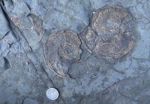(Press-News.org) Males and females differ in a lot of traits (besides the obvious ones) and some evolutionary psychologists have proposed hypotheses to explain why. Some argue, for example, that males' slight, but significant, superiority in spatial navigation over females – a phenomenon demonstrated repeatedly in many species, including humans – is probably "adaptive," meaning that over the course of evolutionary history the trait gave males an advantage that led them to have more offspring than their peers.
A new analysis published in The Quarterly Review of Biology found no support for this hypothesis. The researchers, led by University of Illinois psychology professor Justin Rhodes, looked at 35 studies that included data about the territorial ranges and spatial abilities of 11 species of animals: cuttlefish, deer mice, horses, humans, laboratory mice, meadow voles, pine voles, prairie voles, rats, rhesus macaques and talastuco-tucos (a type of burrowing rodent). Rhodes and his colleagues found that in eight out of 11 species, males demonstrated moderately superior spatial skills to their female counterparts, regardless of the size of their territories or the extent to which males ranged farther than females of the same species. (Watch a video about the research.)
The findings lend support to an often-overlooked hypothesis, Rhodes said. The average superiority of males over females in spatial navigation may just be a "side effect" of testosterone, he said. (Previous studies have shown that women who take testosterone tend to see an improvement in their spatial navigation skills, he said.)
The analysis adds a new dimension to an ongoing debate about the evolutionary significance of some baffling human traits. Rhodes and his colleagues object to "creation stories" that seek to explain sexual phenomena like the female orgasm, rape or menopause by hypothesizing that they evolved because they provided an evolutionary advantage. Some evolutionary psychologists describe rape, for example, as an alternate mating strategy for males who otherwise are reproductively unsuccessful. Others say menopause evolved in women to enhance the survival of their genes by increasing the time spent nurturing their grandchildren. Some of these hypotheses seem intuitive, Rhodes said. "But these stories generally are not testable."
Researchers tend to overlook the fact that many physical and behavioral traits arise as a consequence of random events, or are simply side effects of other changes that offer real evolutionary advantages, he said.
"For example, women have nipples because it's an adaptation; it promotes the survival of their offspring," Rhodes said. "Men get it because it doesn't harm them. So if we see something that's advantageous for one sex, the other sex will get it because it's inheriting the same genes – unless it's bad for that sex."
Similarly, scientists who claim that the different spatial skills in men and women are adaptive must explain why women failed to inherit the superior spatial skills of their navigationally enhanced fathers, Rhodes said.
"The only way you will get a sex difference (in an adaptive trait) is where a trait is good for one sex and bad for the other," he said. "But how is navigation bad for women? This is a flaw in the logic."
"When people hear arguments made or stories told, particularly about human behaviors being products of adaptation, I think they should ask the question: 'Where is the evidence?' " Rhodes said.
Rhodes is an affiliate of the Beckman Institute for Advanced Science and Technology at Illinois.
INFORMATION:
The research team also included a philosopher from the University of Wisconsin at Madison and a scientist from the University of California at Riverside.
Editor's note: To contact Justin Rhodes, call 217-265-0021; email jrhodes@illinois.edu.
The paper, "Male Superiority in Spatial Navigation: Adaptation or Side Effect?" is available from the U. of I. News Bureau.
Males' superior spatial ability likely is not an evolutionary adaptation
2013-02-19
ELSE PRESS RELEASES FROM THIS DATE:
Sports, shared activities are 'game changers' for dad/daughter relationships, Baylor study finds
2013-02-19
The most frequent turning point in father-daughter relationships is shared activity — especially sports — ahead of such pivotal events as when a daughter marries or leaves home, according to a study by Baylor University researchers.
"This is the masculine style of building closeness — called 'closeness in the doing' – whereas the feminine orientation is talking, 'closeness in the dialogue,'" said Mark T. Morman, Ph.D., a professor of communication in Baylor's College of Arts & Sciences. An article about the findings by Morman and former Baylor graduate student Elizabeth ...
Engineering cells for more efficient biofuel production
2013-02-19
CAMBRIDGE, Mass. — In the search for renewable alternatives to gasoline, heavy alcohols such as isobutanol are promising candidates. Not only do they contain more energy than ethanol, but they are also more compatible with existing gasoline-based infrastructure. For isobutanol to become practical, however, scientists need a way to reliably produce huge quantities of it from renewable sources.
MIT chemical engineers and biologists have now devised a way to dramatically boost isobutanol production in yeast, which naturally make it in small amounts. They engineered yeast ...
Horses don't have stage fright -- but their riders do
2013-02-19
It is well known that horses show symptoms of stress when ridden but relatively little attention has been paid to the effects on their riders. This is surprising, as equestrian sports rely on the close cooperation between the animals and their riders. How does the horse-rider team cope with the stress involved in competing in an equestrian event?
The issue has now been studied by Mareike von Lewinski in the group of Christine Aurich at the University of Veterinary Medicine, Vienna (Vetmeduni Vienna), together with colleagues at the Vetmeduni Vienna and at the Ecole ...
Don't trust liposomes in your beauty products
2013-02-19
Liposomes are small fat capsules, often added to beauty products.
According to the beauty industry liposomes are capable of transporting active ingredients deep into the skin and release the active ingredients so that they can alter the skin´s structure by rejuvenating and smoothing the skin.
Research from University of Southern Denmark now shows that liposomes are not capable of transporting themselves deep into the skin, and thus they are not capable of transporting active ingredients deep into the skin.
"We have shown that liposomes are destroyed before they ...
Nicotine lozenges, tobacco-free snuff help smokeless tobacco users quit, Mayo Clinic finds
2013-02-19
ROCHESTER, Minn. -- Smokeless tobacco users who said they didn't want to quit changed their minds or significantly cut back when given nicotine lozenges or tobacco-free snuff in a Mayo Clinic study. The findings are published in the February issue of Addictive Behaviors.
Mayo researchers recruited 81 users of chewing tobacco or snuff with no intention of quitting in the next 30 days. Forty were given 4-mg nicotine lozenges and 41 received tobacco-free snuff to help cut back their smokeless tobacco use. They were asked to cut back 50 percent by one month and 75 percent ...
Fungi offers new clues in asthma fight, say Cardiff scientists
2013-02-19
Hundreds of tiny fungal particles found in the lungs of asthma sufferers could offer new clues in the development of new treatments, according to a team of Cardiff University scientists.
In the first large study of its type, published in the journal, BMC Infectious Diseases, a team of researchers from Cardiff University's School of Medicine have uncovered large numbers of fungi present in healthy lungs.
"Historically, the lungs were thought to be sterile," according to Dr Hugo van Woerden from Cardiff University's Institute of Primary Care and Public Health, who led ...
Is there a link between coffee drinking and mortality?
2013-02-19
New Rochelle, NY, February 19, 2013–A large study of nearly half a million older adults followed for about 12 years revealed a clear trend: as coffee drinking increased, the risk of death decreased. Study author Neal Freedman, PhD, MPH, National Cancer Institute, discusses the significance of these findings and the potential links between coffee drinking, caffeine consumption, and various specific causes of disease in an interview in Journal of Caffeine Research, a peer-reviewed journal from Mary Ann Liebert, Inc., publishers. The article is available free on the Journal ...
Fear, anger or pain -- Why do babies cry?
2013-02-19
VIDEO:
Spanish researchers have studied adults’ accuracy in the recognition of the emotion causing babies to cry. Eye movement and the dynamic of the cry play a key role in recognition.
Click here for more information.
Spanish researchers have studied adults' accuracy in the recognition of the emotion causing babies to cry. Eye movement and the dynamic of the cry play a key role in recognition.
It is not easy to know why a newborn cries, especially amongst first-time ...
Study shows reduced risk of preterm birth for pregnant women vaccinated during pandemic flu
2013-02-19
ATLANTA- Pregnant women who received the H1N1 influenza vaccine during the 2009 pandemic were less likely to have premature babies, and their babies weighed more on average.
Influenza infection during pregnancy is associated with adverse infant outcomes such as preterm birth. Emory researchers from the Rollins School of Public Health, in a joint study with Kaiser Permanente of Georgia and the Mid-Atlantic States, evaluated the effectiveness of the H1N1 influenza vaccine in pregnant women against adverse infant outcomes during the 2009 pandemic. They compared birth outcomes ...
Jurassic records warn of risk to marine life from global warming
2013-02-19
Researchers at Plymouth University, UK, believe that findings from fieldwork along the North Yorkshire coast reveal strong parallels between the Early Jurassic era of 180 million years ago and current climate predictions over the next century.
Through geology and palaeontology, they've shown how higher temperatures and lower oxygen levels caused drastic changes to marine communities, and that while the Jurassic seas eventually recovered from the effects of global warming, the marine ecosystems that returned were noticeably different from before.
The results of the Natural ...



